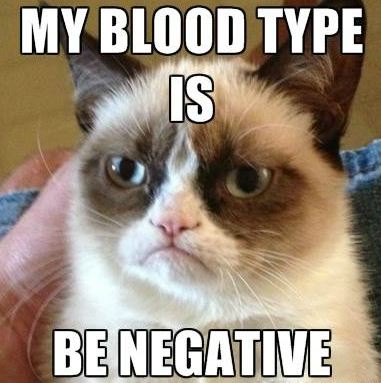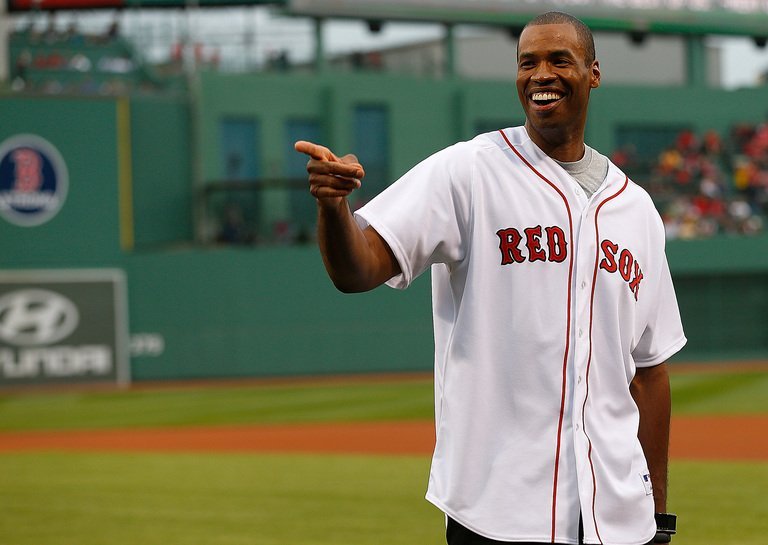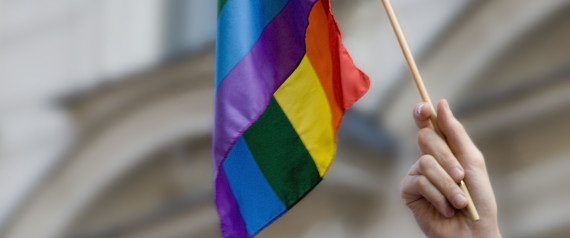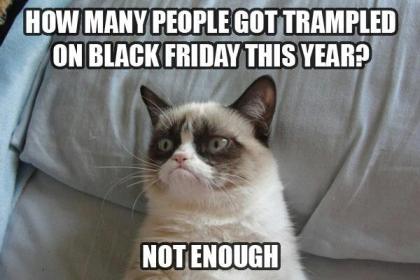










Posts made by leatherbear
-
Grumpy Catposted in Chit Chat
If you do not know "Grumpy Cat" here is an introduction. :cheers: leatherbear :love: Grumpy Cat


You Tube Link to Grumpy Cat : http://www.youtube.com/results?search_query=Grumpy+Cat&oq=Grumpy+Cat&gs_l=youtube.3..0l10.3489.9407.0.15823.12.8.1.3.3.0.131.756.5j3.8.0…0.0...1ac.1.11.youtube.B57uGu7qlmE
Buzz Feed News about Grumpy Cat : http://on.aol.com/video/grumpy-cat-gets-friskies-endorsement-deal-517938900?hp=1&playlist=127164&icid=maing-grid7|main5|daily-buzz11|sec12_lnk2|377586










-
RE: Eating Your Way to Heart Healthposted in Health & Fitness
Choose Whole Grains, Protect Your Heart

Whole grains are the heart-healthy choice because they're a great source of fiber, which boasts many health benefits. Here's what you should know about choosing whole grains.
By Kristen Stewart
Medically reviewed by Niya Jones, MD, MPHIt’s no secret that whole grains are one of the best sources of fiber. And every time you go to the bread or cereal aisle at the grocery store, you can find a myriad of products touting “whole-wheat,” “whole-grain,” or “12-grain,” to name a few. But what do these labels really mean, and which grains should you be buying and eating to help protect your heart?
What Are Whole Grains?
Whole grains are made up of three different parts: The bran, which is the outer layer and full of fiber; the endosperm, or smooth middle area; and the germ, the inner nutrient-rich area.
“Whole grains are comprised of exactly that — the whole grain, with all three components of the grain and all of the fiber and nutrients intact,” explains Hannah El-Amin, RD, CDE, a nutritionist with Northwestern Memorial Hospital in Chicago and owner of Nutrition That Fits, a nutrition counseling service.
On the other hand, refined or processed grains separate the bran and germ, leaving just the endosperm. This results in a smoother texture, but a lot of the fiber and nutrients are lost in the process. Bread is an example: All bread is made from flour, but the flour for whole-wheat bread uses the whole grain, whereas the flour in white bread is comprised of just the endosperm. This means you won’t get the benefits of fiber from eating white bread.
How Whole Grains Protect Your Heart (and More)
A diet rich in fiber offers numerous benefits. Research shows that fiber protects your heart by lowering triglycerides and cholesterol, decreasing blood pressure, and helping regulate blood sugar levels. A study performed at Northwestern University Feinberg School of Medicine in Chicago found that adults between 20 and 59 years old with the highest fiber intake had significantly lower risk of heart disease over their lifetimes as opposed to those with the lowest fiber intake.
There are many digestive benefits to fiber as well. “Fiber helps provide a sensation of fullness following a meal,” El-Amin says. “This is great for weight management.” It also helps promote regular digestion and helps protect against some types of cancer.
This article contains many live links within the text in the original post.
-
Eating Your Way to Heart Healthposted in Health & Fitness
Your cardiovascular health greatly depends on what you eat. Which foods can harm you, and which ones are best to maintain a healthy heart?
By Eleanor Roberts, PhD
Medically reviewed by Philip Green, MDThe American Heart Association recommends eating a heart-healthy diet containing fruit, vegetables, fiber, low-fat dairy, lean meat, and foods with low amounts of salt and sugar. Getting into the habit of looking at food labels is a great way to see what’s going into your body.
Vegetables as Part of a Healthy Diet
The closer you get to the daily recommended number of servings of fruits and vegetables, the more you improve your cardiovascular health.
Eat at least two servings of vegetables a day for the fiber and nutrients ideally including something from each of these five groups every week: dark greens, orange veggies, legumes (dried beans and peas), and starchy vegetables.
One serving equals:
One cup of cabbage, lettuce, spinach, tomatoes, eggplant, or zucchini
One-half cup of sweeter, starchier vegetables like carrots, potatoes, or sweet potato
One-half cup of vegetable juice (but check the salt content, which can be high)Fruit as Part of a Healthy Diet
You should also have at least five servings of fruit a day. They can be canned (but not in syrup) or frozen, but the ideal choice is fresh fruit of many different colors — try a mixed fruit salad with yogurt. Dried fruit is great as a snack and fruit juice is easy to drink, but the sugar content may be high.
One serving equals:
One medium fruit
One-half cup frozen or canned fruit
One-quarter cup of dried fruitDairy as Part of a Healthy Diet
Dairy products include milk, butter, cheese, and yogurt; low-fat or fat-free is best. You need two to three servings a day.
One serving equals:
One cup of fat-free or low-fat milk or yogurt
One-and-a-half ounce cup of fat-free or low-fat cheeseWhole Grains as Part of a Healthy Diet
Grains give you the fiber you need to digest your food. Although white bread, white pasta, and white rice count as grains, they are refined, meaning a lot of the fiber has been taken out; so look for the more healthy whole-grains. Six to eight servings a day is ideal, with a wide variety being the best.
One serving equals:
One slice of bread (preferably whole grain)
One ounce of cereal (preferably whole grain)
One half-cup cooked pasta, rice, or cereal (preferably brown)Nuts, Seeds, and Legumes
Nuts, seeds, and legumes (such as beans), contain fats — but they are the good fats your body needs. You don’t need them daily, but you should consume three to five servings per week.
One serving equals:
One-half cup of beans or peas (dry)
One-third cup of nuts
Two tablespoons of peanut butter
One-half ounce of seedsMeat, Poultry, and Fish
Seafood, and meats like pork, beef, and poultry, can all be part of a healthy diet. If you eat meat every day, go for lean cuts, and a good variety — avoid eating red meat every day. Try oily fish, like tuna, because it's high in omega-3 polyunsaturated fatty acids that can lower the risk of heart disease by decreasing levels of triglycerides (a component of fat) in the blood. Two servings of meat per day are the most you should have.
One serving equals either three ounces of cooked meat — about the size of a computer mouse — or three ounces of grilled fish.
Fats in a Healthy Diet
There are healthy fats (mostly those in non-meat sources) and unhealthy ones (mostly from red meat). Many body components, including cell membranes, contain fats, so cutting out every single ounce of fat from the diet is not recommended. Fat should comprise between 20 percent to 35 percent of the calories in your diet — stick to two servings a day.
Trans fats — made by chemically treating vegetable fat — have been linked to the development of cardiovascular disease. They're found in some margarine, oils, cakes and other processed baked goods, and shortening. Trans fats increase the levels of “bad” low-density lipoproteins (LDL), which help build up cholesterol in the arteries, and decrease levels of “good” high-density lipoproteins (HDL), which can remove cholesterol. Many products list their trans fat content on the label. You should avoid it completely whenever possible.
One serving of fat equals:
One teaspoon of vegetable oil
One tablespoon of mayonnaise
One teaspoon of margarine
One tablespoon of regular salad dressing, or two tablespoons of low-fat salad dressingSugar and a Healthy Diet
If you are not an active person, you should eat very little sugar. Even if you are active, you should only have up to five servings of sugary foods per week. Check the labels for sugar contained in processed foods; while you may be getting a healthy amount of fiber in a can of baked beans, those beans could contain a lot of extra sugar as well.
One serving of sugar equals:
One cup of sweetened lemonade
One tablespoon of sugar, jam, or jelly
One-half cup of sorbet or icesSalt and a Healthy Diet
Many studies directly link high salt intake to high blood pressure and an increased risk of cardiovascular disease, regardless of a person’s weight.. As with sugar, look for hidden salt in processed food by checking food labels. The recommended limit is 2,300 mg, about one teaspoon a day. Older adults and those with high blood pressure should have only 1,500 mg, about two-thirds of a teaspoon.
Making heart-smart dietary choices is a lot simpler than it may sound, especially once you get in the habit of healthy eating.
http://www.everydayhealth.com/heart-health/eat-healthy-foods.aspx?xid=aol_rss
This article contains many live links within the text in the original post.[/b
-
Labor Dept: same-sex spouses can participate in benefit plansposted in LGBT News
A box of cupcakes are seen topped with icons of same-sex couples at City Hall in San Francisco,
By Amanda Becker
(Reuters) - The Department of Labor on Wednesday said same-sex couples in legal marriages can participate in employee benefit plans, even if the state they live in does not recognize gay marriage.
Same-sex spouses, regardless of where they live, can now participate in the private retirement and healthcare plans overseen by the department's Employee Benefits Security Administration (EBSA), the department said in a release.
The move comes after the U.S. Supreme Court's June decision in United States v. Windsor, which extended federal benefits to those in same-sex marriages.
Labor Secretary Thomas Perez called the ruling a "historic step forward" and said the department would work to implement it in a way providing "maximum protection" for American workers.
"By providing greater clarity on how the Supreme Court's decision affects one of the laws we enforce, we are contributing to greater equality and greater protection for America's working families," EBSA Assistant Secretary Phyllis Borzi said.
EBSA oversees 701,000 private retirement plans and 2.3 million health plans, according to the department.
Perez said in an August email sent to department employees that the agency had begun to prepare its response to the Supreme Court ruling. One of its first determinations was that same-sex couples would be covered by the Family Medical Leave Act.
But at that point, Perez did not say whether it would apply to same-sex couples who were legally married in one jurisdiction but who were currently residing in jurisdictions where their marriages were not recognized.
Gay rights advocates hailed the department's decision to adopt a "state of celebration" rule, which recognizes all legally married couples regardless of location, in determining eligible benefit plan participants.
"We urge Secretary Perez and the Labor Department to push for full legal equality, and re-write the Family Medical Leave Act regulations to adopt these same ‘state of celebration' rules so that all married couples - no matter where they live - can have job protections," said Tico Almeida, founder and president of Freedom to Work, a gay rights group, in a statement.
(Editing by Kevin Drawbaugh and Ken Wills) http://news.yahoo.com/labor-dept-same-sex-spouses-participate-benefit-plans-231213588.html
-
Senator McCain attacks Putin in Russian website op-edposted in Politics & Debate
By Thomas Grove
MOSCOW (Reuters) - Senator John McCain on Thursday accused Russian President Vladimir Putin of allying himself with tyrants and ruling through violence and repression, in a scathing retort to a New York Times editorial by Putin earlier this month.
In an editorial published on news website Pravda.ru, McCain criticized the Russian leader's policies at home and in Syria, where Putin has repeatedly protected President Bashar al-Assad.
"(Putin) is not enhancing Russia's global reputation. He is destroying it. He has made her a friend to tyrants and an enemy to the oppressed, and untrusted by nations that seek to build a safer, more peaceful and prosperous world," wrote the senior senator from Arizona, who is also a leading Republican voice on military affairs.
Pravda.ru considers itself a successor to the Soviet-era Communist Party newspaper but is not connected to it. Like the newspaper, which still exists, it has a limited readership.
U.S.-Russia ties are at one of their lowest points since the Cold War as tensions over human rights and the fate of fugitive ex-U.S. intelligence contractor Edward Snowden, to whom Russia awarded asylum, have added to tensions over the Syrian conflict.
Putin's op-ed article took issue with U.S. President Barack Obama's claims of "American exceptionalism" and said a military strike against Assad could escalate the conflict that has already killed more than 100,000 people.
Russia has blocked three consecutive U.N. resolutions aimed at pressuring Assad to end violence and has held talks on a plan enabling the Syrian leader to give up his chemical weapons to avoid possible U.S. military strikes.
McCain, who is known in Russia as one of the Kremlin's harshest critics, warned Putin in 2011 that "the Arab Spring is coming to a neighborhood near you" when fraud allegations triggered mass street protests after a parliamentary election.
The senator has been critical of Putin's domestic policies, including Moscow's response to the protest movement that has all but died out after Russia's parliament passed laws that critics say are intended to clamp down on dissent.
"President Putin and his associates … don't respect your dignity or accept your authority over them. They punish dissent and imprison opponents. They rig your elections. They control your media," McCain wrote.
After Russia gave asylum to Snowden, who is wanted by U.S. authorities, McCain said Washington should complete missile-defense programs in Europe and expand NATO to include Russian neighbor Georgia - both endeavors that are anathema to Moscow.
McCain also made reference to dead whistleblower Sergei Magnitsky, who died in pre-trial detention after accusing officials of a $230-million fraud and suggested his support for Pussy Riot, a protest punk band, two members of which are currently behind bars for a protest against Putin in a Moscow cathedral.
(Editing by Sonya Hepinstall) http://news.yahoo.com/senator-mccain-attacks-putin-russian-website-op-ed-092441733.html
-
Higher thread count doesn’t guarantee better sheetsposted in Decorating

By Izabela Rutkowski | Consumer Reports
A mantra at Consumer Reports is that high-priced products aren’t necessarily higher performing. The same can be said of sheets with high thread counts. Despite the notion that more is better, in our past sheet tests we confirmed that a higher thread count doesn't guarantee better sheets. To uncover the truth behind this misleading marketing gotcha, we talked to our experts.
Thread count is the number of vertical and horizontal threads per square inch. Not long ago, sheets typically had thread counts of 120 with 60 horizontal and 60 vertical threads. In the 1960’s, a sheet with a 180 thread count was considered a luxury. “Now you see 1,000 thread count sheets but you just can’t get that many threads on a loom,” says Pat Slaven, a textile expert at Consumer Reports.
To get that higher number, manufacturers use thinner strands of fabric twisted together as if they were one. Then they double, triple or even quadruple the thread count to make the number more attractive to the consumer. “It ups the count but doesn’t give you a better sheet,” says Slaven. “The sweet spot is 400.”
In Consumer Reports last sheet tests, our top-scoring percale sheet had a thread count of only 280. They were strong, shrank little, and easily fit mattresses up to 17 inches thick, even after we washed and dried them five times.
Spending money on sheets that have more than a 400 thread count is not necessary, says Slaven. Instead, focus on the fabric the sheets are made of. Combed cotton, Egyptian cotton or Pima cotton are the best choices. Read the labels closely. If you like soft sheets, choose a sateen but if you prefer crisp sheets, try percale. And keep in mind that selecting sheets by how they feel in the store can be misleading because manufacturers add hand enhancers, silicone softeners, that wash out after the first trip to a laundry. That’s why it’s important to keep the receipt and return the sheets if you don’t like how they feel after they’ve been washed.
To prevent your sheets from pilling, wash them separately from your towels because the short fibers in towels can attach to the smooth surface of the sheets. And use a good laundry detergent. Tide Ultra plus Bleach Vivid White + Bright HE, 23 cents per load, topped our laundry detergent Ratings. It was excellent overall, even in cool water. If you prefer single-use detergents, our top-performing pods were Kirkland Signature Ultra Clean Pacs from Costco, 14 cents per load, and Tide Pods, 22 cents per load.
For more on shopping for sheets, see Pat Slaven’s appearance earlier this summer on ABC News. She can also show you how to fold a fitted sheet, a task that confounds many. And don't miss our mattress Ratings, including six recommended mattresses.
This article contains many live links within the text in the original post.
-
RE: My new bengal kittenposted in Pets

:jaj: Rob and I are graced to share our lives with, believe it or not, 6 Cats. :jaj:
And trust me my house does not smell like a litter box, again, believe it or not. :ok2:
-
Gay sportsmen Cruz, Rogers make mark but Collins waitsposted in Coming Out

Jason Collins reacts after throwing out the first pitch before a game between the Texas Rangers and the Boston Red Sox at
Jim Slater
Months after admitting they are gay athletes, football's Robbie Rogers, basketball's Jason Collins and boxer Orlando Cruz have been unable to have much on-field impact upon the global sporting landscape.
Collins, a 34-year-old journeyman free agent center who revealed his homosexuality last April after the NBA season had concluded, is still seeking a team to sign him with the start of NBA pre-season training camps less than two weeks away.
Rogers, who made a historic debut with the Los Angeles Galaxy in May, has played only nine times for the Major League Soccer club after a hamstring injury last month.
And Cruz, twice a winner since admitting last October that he is gay, will finally have the first world title bout of his 13-year career next month and is dedicating it to his gay supporters as well as his homeland of Puerto Rico.
"I'm happy with my situation," Cruz said. "I have had a lot of support from all around the world. I want to thank all the people who have supported me. I've been working hard for this one. I want to do this for Puerto Rico and the LGBT (Lesbian-Gay-Bisexual-Transgender) community – I want to dedicate it to my people."
Southpaw Cruz, 20-2 with 1 drawn and 10 knockouts, will fight Mexican former world champion Orlando Salido, 39-12-2 with 27 knockouts, for the vacant World Boxing Organization featherweight title on October 12 at Las Vegas.
"My life changed completely. I'm a different person," Cruz said of what has happened to him since his revelation. "I just want to keep going. I'm happy with the support. I want to keep climbing the mountain and with the support I get to bring the title to my people and make history."
Cruz would become the first openly gay world champion in boxing history with a victory.
"I'm proud of him for being brave, for coming out like he did," said Cruz's promoter Tuto Zabala. "It's just amazing the happiness he has. Everything's ready for his title shot."
By contrast, Collins revealed his status to great fanfare in an article in Sports Illustrated after finishing a season split between the Boston Celtics and Washington Wizards.
US President Barack Obama called to congratulate him and players from around the league supported his decision. But so far, no team wants him on their bench.
"It's time for someone to step forward," Collins told the Seattle Times earlier this month.
"I don't care if I score a single basket. I care about winning basketball games," Collins said. "That's what I've done my whole career and that's what I hope to continue to do in this upcoming season."
Collins helped the Nets reach the NBA Finals when they were based in New Jersey and former teammate Jason Kidd, now coach of the Brooklyn Nets, says Collins still has something to offer a team.
"I think he can still play," Kidd said last month. "There's always a veteran that can help a young team. I think he will find a job at some point."
Also looking for work is Chris Kluwe, a vocal gay rights advocate who was a punter for the NFL Minnesota Vikings until being dropped last May 6, barely a week after being a vocal supporter of Collins.
Kluwe underwent minor left knee surgery in the off-season but was in good health at the time. He was given a look by the Oakland Raiders in the pre-season but dropped before the season began earlier this month.
While there was talk of an NFL player revealing that he is gay in the wake of Collins's announcement, no such move has been made.
A groundbreaking moment came last May 26, however, as US midfielder Rogers walked onto the field as a substitute in the Galaxy's 4-0 win over Seattle to become the first openly gay man to play in a major North American pro sports league.
Rogers, who had played for Leeds in England, had revealed he was gay earlier this year as he announced his retirement, but he made an MLS comeback and played nine matches with the Galaxy.
http://sports.yahoo.com/news/gay-sportsmen-cruz-rogers-mark-collins-waits-195628121–nba.html
This article contains many live links within the text in the original post and a Photo Gallery.
-
Legal marijuana: Will most states head that way?posted in General News
Speculation is afoot after the Justice Department signaled it will mostly leave to states the responsibility to regulate use. Washington State and Colorado are already working out details of legal marijuana.
Patrik Jonsson
Is it possible that most US states will legalize marijuana for recreational use?
Already, Washington State and Colorado are working out detailed regulations for such use after voters last year approved the possession and consumption of personal amounts of pot. And 20 states, plus the District of Columbia, have allowed marijuana for medicinal purposes.
It's been 17 years since California voters shocked the world by allowing doctors to write prescriptions for pot and almost exactly 31 years since Ronald Reagan assured the nation that "we're going to win the war" on marijuana and other illicit drugs.
RECOMMENDED: How much do you know about marijuana? Take the quiz
Now this summer, the Department of Justice (DOJ) has signaled that it will mostly leave to states the responsibility to regulate individuals' use of pot. And a majority of Americans – 52 percent, according to the Pew Research Center, now agree with that ubiquitous reggae plea: "Le-ga-lize it."
Yes, people are still being arrested for selling, even consuming, outlawed street drugs, and many members of society are still troubled by, among other things, new psychoactive compounds like the club drug "Molly," which has been blamed for several recent deaths.
And specifically regarding marijuana, the federal government still categorizes it as more harmful than cocaine.
Nevertheless, some policy experts predict that 1 out of 5 states will have legal recreational marijuana for American adults by 2016, and even some legalization critics like columnist David Frum have conceded that before long, half of US states will probably sanction recreational use.
To be sure, some suggest those time frames may be a bit heady, especially given the relatively slow pace of medical-marijuana expansion. But such predictions are also hard to discount, given rapidly shifting attitudes, often across political lines, about pot.
"There's a lot of political forces at play here, and there's a sense that the DOJ's announcement, which does represent a pretty big policy shift, doesn't tackle everything," says Robert Mikos, a marijuana law expert at Vanderbilt University Law School in Nashville, Tenn.
The legalization movement can trace its beginnings to the day in the mid-1960s when a Haight-Ashbury hippie walked into a San Francisco police station smoking a joint and demanded to be arrested. The lawyer who took up his cause was politically "right of [Barry] Goldwater," who believed the government had no business criminalizing a personal choice like smoking pot, says historian Martin Lee.
That strange amalgam – libertarians and hippies – remains the foundation around which cultural shifts on pot have happened.
"It's very much an odd-duck coalition," says Mr. Lee, author of "Smoke Signals," a social history of marijuana. "It includes libertarians calling upon government to tax and regulate – not something that libertarians usually do – and liberals calling for states' rights. The whole thing is very strange. But it's also partly why it's succeeding and prevailing" culturally and politically, he says.
California's medical-marijuana initiative became another landmark – partly because worries that the Golden State would turn into a land of zoned-out stoners never quite bore out.
In that light, "anybody who looks at this objectively at this point comes to the same conclusion, which is that regulation is working … and it's clearly a better alternative than allowing the black market to control such a popular substance," says Aaron Smith, executive director of the National Cannabis Industry Association.
Professor Mikos argues that something else happened on the way to marijuana accommodations, as well: the Great Recession.
Revenue-starved states and even conservative politicians, including libertarians and law-and-order types, are taking a harder, more nuanced look at legitimizing the massive underground marijuana market. In Vermont, for example, police backed a decriminalization law, and in California, one of the state's most conservative politicians, Assemblyman Tim Donnelly (R), is arguing for an end to discrepancies in drug sentencing rules. Even some of the most conservative corners of Colorado voted for legalization.
"You've got tough economic times: States are looking for new sources of revenues, ways to cut expenses. And maintaining the drug war costs money, and throwing people in prison for marijuana costs money," Mikos says.
Now, the Justice Department has indicated its position, by and large allowing states to regulate pot. But in testimony before Congress on Sept. 10, Deputy Attorney General James Cole said the decision is not an abdication of responsibility to uphold federal law, since the Justice Department will continue to investigate and prosecute drug-related crimes that occur outside states' regulatory frameworks. Federal priorities will include the prevention of pot distribution to minors and of the transport of marijuana to states where it remains illegal.
The Obama administration's newfound marijuana discretion has its share of staunch critics. To Sen. Charles Grassley (R) of Iowa, "giving the green light to an industry predicated on breaking federal law" borders on unconstitutional and is poor national health policy. Former drug czars wrote a scathing critique, saying the new DOJ policy will have catastrophic effects on the nation. Also, some note that an audit of Colorado's medical marijuana bureau showed major problems.
Along with the new Justice Department stance, the US Treasury Department is exploring new regulations to assure banks that they won't be prosecuted for taking deposits and transfers from weed dispensaries and growers. Currently, pot dispensaries operate chiefly on cash, which makes them prime targets for armed robberies.
Marijuana advocates are also pushing to change the federal tax code to allow pot dispensaries and growers to deduct business expenses from their taxes, like other businesses do.
Dan Riffle, a former Ohio prosecutor who's now federal policy director at the Marijuana Policy Project in Washington, is optimistic about voters in more states following the lead of Washington State and Colorado.
"We'll see Alaska pass an initiative in 2014, and it's conceivable that Oregon will pass [one] in 2014," he says. "Going into 2016, we'll see California, Arizona, Nevada, possibly Maine, possibly Massachusetts – a whole wave of states tax and regulate marijuana by ballot initiative."
He adds, "Shortly thereafter, there will be a few states that will [regulate marijuana] legislatively, including Rhode Island, New Hampshire, and Hawaii."
Presidential election years, in particular, can be like green gold for pot advocates. Last year, for example, 200,000 more Arkansans voted for medical marijuana than for President Obama – although the ballot initiative ultimately failed by a hair.
If the Northeast and West are moving rapidly toward legalization, pot remains scorned in the South and parts of the Midwest, where legalization advocates have made few inroads, largely because of cultural and religious intolerance for intoxication. "I don't think we'll see legalization in Mississippi, for example, in the next 10 years," says Mr. Smith of the cannabis association.
The parallel, he says, is alcohol prohibition, which didn't end in Mississippi until 1966. And it wasn't until 2011 that Georgia ended its Sunday ban on alcohol.
Yet even the South is beginning to bend. Florida is mulling a medical-marijuana referendum, and North Carolina and, yes, Mississippi have recently decriminalized pot possession.
Elected officials in the so-called Bible Belt could be watching the political winds: Some 58 percent of Tar Heel residents are OK with medical marijuana, according to a recent Public Policy Polling survey.
RECOMMENDED: How much do you know about marijuana? Take the quiz
Opponents of marijuana expansion acknowledge that they're being pounded on several fronts, including fundraising, news media, and now the Justice Department. For example, the antilegalization side raised $6,000 in Massachusetts to fight a medical-marijuana vote, while pro-pot forces raised $1.2 million.
With the DOJ decision, Attorney General Eric Holder "has not just opened the floodgates, he's blown the dam wide open," says Calvina Fay, executive director of Save Our Society From Drugs in St. Petersburg, Fla.
Citing studies that show drops in IQ and health problems in heavy pot smokers, "I shudder to think where we're going to be in another generation," Ms. Fay says. "Is this really what we want for the future of our children?"
http://news.yahoo.com/legal-marijuana-most-states-head-way-140307734.html
This article contains many live links within the text in the original post.
-
Mary Fallin, Oklahoma Gov., …....posted in Politics & Debate
Tells National Guard To Stop Processing Benefits For Gay Couples
By SEAN MURPHY
OKLAHOMA CITY – Oklahoma Gov. Mary Fallin has ordered the National Guard to stop processing requests for military benefits for same-sex couples, her office confirmed Tuesday, despite a Pentagon directive to do so.
Fallin spokesman Alex Weintz said the governor was following the wish of Oklahoma voters, who approved a constitutional amendment in 2004 that prohibits giving benefits of marriage to gay couples.
"Because of that prohibition, Gov. Fallin's general counsel has advised the National Guard not to process requests for benefits of same-sex couples," Weintz said. "Gay couples that have been legally married in other states will be advised they can apply for those benefits on federal facilities, such as Tinker Air Force Base, rather than state run facilities."
Fallin ordered the policy change on Sept. 5, Weintz said.
The policy is a shift from how the Guard had been handling requests for benefits from same-sex partners in the ranks of the roughly 9,500 guard soldiers and airmen in Oklahoma, said Oklahoma National Guard spokesman Col. Max Moss.
Moss said the agency had been processing benefits for same-sex soldiers just like those from heterosexual couples until Fallin's office ordered the change in policy. He said state officials already had helped process benefit requests for two gay soldiers before Fallin's directive.
Moss added that any soldiers who request marriage benefits for their same-sex spouse will be informed how they can receive those benefits.
"If we have a situation where we have a soldier who's in a same-sex marriage, we're going to explain to that soldier how they can go about acquiring those benefits," Moss said. "At this point, that's directing them to a federal facility.
"We want our soldiers to have all the benefits to which they're entitled to."
The Pentagon announced last month that same-sex spouses of military members will be eligible for the same health care, housing and other benefits enjoyed by opposite-sex spouses starting Sept. 3. That decision followed consultation with the Justice Department and the U.S. Supreme Court's ruling in June on the constitutionality of the Defense of Marriage Act.
After the U.S. Department of Defense began allowing same-sex couples to apply for identification cards and benefits, National Guard officials in Texas, Mississippi and Louisiana said they would refuse to process the applications. Like Oklahoma, all three states have gay-marriage bans and are led by socially conservative Republican governors.
Fallin's decision prompted the president of a support group for gay military families to call for the Defense Department to "stop this discrimination."
"Since the governor of Oklahoma has decided to join Texas, Mississippi, and Louisiana in playing politics with our military families, we need immediate and decisive action from the administration and the defense department in affirming that all military spouses, regardless of sexual orientation, will be treated equally," Stephen Peters, president of the American Military Partner Association, said in a statement.
Sean Murphy can be reached at www.twitter.com/apseanmurphy
This article has a video clip and slideshow included in the original post.
-
Federal Court Poised To Decide…posted in LGBT News
If Sexual Orientation May Be A Factor In Jury Selection

The Huffington Post | By Lydia O'Connor
A legal battle between two rival pharmaceutical companies may consequentially resolve another, bigger debate: whether gays and lesbians may be excluded from a jury based solely on their sexual orientation.
San Francisco's Ninth Circuit Court of Appeals on Wednesday will revisit a 2011 antitrust case between Abbott Laboratories and GlaxoSmithKline. In the case, GSK argued that Abbott had unfairly upped the price of the HIV-fighting drug Norvir by 400 percent in order to boost sales of its other HIV drug, Kaletra. GSK claimed that Abbott did so in order to harm competitors – including GSK -- whose drugs must be taken with Norvir.
While the price hikes sparked a backlash among AIDS advocates and the gay community, the court ultimately ruled in Abbott's favor.
GSK is now appealing that decision, citing Abbot's rejection of a gay man as a potential juror as a move that should have been blocked by Batson v. Kentucky, a 1986 case establishing that a person may not be excluded from a jury because of race. Whether Batson also applies to sexual orientation may be answered by the case.
In legal documents, GSK also points to a more recent court decision: United States v. Windsor, in which the Supreme Court overturned the Defense of Marriage Act in June, citing the Equal Protection Clause.
"Windsor compels the conclusion that if the Equal Protection Clause offers any meaningful protection to gays and lesbians, the Clause must guarantee them the right and duty to participate in our country’s jury process," GSK's legal team argued. "Batson prohibits striking jurors based on classifications that have historically perpetuated discrimination against minority groups."
Abbott, however, dismissed the notion that Windsor established a precedent extending Batson to include sexual orientation, citing a 1997 holding that “homosexuals do not constitute a suspect or quasisuspect class entitled to greater than rational basis scrutiny," meaning that a person's sexual orientation can legally be considered when scrutinizing his or her eligibility to be on a jury.
Moreover, Abbott denies the bumped juror's sexuality was even the reason for his removal in the first place. Rather, it was his previous employment at the court, knowledge of a drug at issue in the case and loss of a friend to AIDS that Abbott says necessitated his exclusion from the jury.
Twelve civil rights groups are joining GSK in its argument, the San Jose Mercury News reported.
"For a court to conclude it's fine for someone to be excluded from jury service because someone didn't want a gay person on the jury would send a bad message," said Jon Davidson, legal director of Lambda Legal.
Abbot has argued in court documents that the case is an inappropriate forum for such a discussion. "It is well established that a federal court should avoid resolution of constitutional questions when the case may be decided on a narrower ground," the documents read.
Legal experts say the case could ultimately reach the Supreme Court.
http://www.huffingtonpost.com/2013/09/18/gay-jury-bias-drug-companies_n_3937763.html This article contains many live links within the text in the original post.
-
RE: C'mon men! Show me your balls!posted in Voyeurism


:cheers: Unique post from an obviously Unique Man!!! :cheers:
I am not sure this fits into Voyeurism but I will allow this post to stay in this thread. By stretching the meaning of "Voyeurism" it is a voyeuristic view of how you see yourself. :clap2:
-
BOD: Gay Marriageposted in Civil Unions & Marriage
This link is to a very short video clip of Will Durst ~ Comedian and News Junkie ~ on Gay Marriage. I found it funny and yet spot on with what should be the point of view for all humanity on this topic. I hope you like it as much as I did :ok1:
-
Ex-NFLer Young wants to build bridges with gaysposted in Religion & Philosophy

Steve Young
SALT LAKE CITY (AP) – Legendary NFL quarterback Steve Young says he's a Mormon who wants to build bridges with the gay community.
Young spoke Saturday night to about 400 people attending the New Frontiers conference of the group Affirmation: Gay and Lesbian Mormons.
The former BYU quarterback said his goal ''is to build bridges with my gay brothers and sisters. We need to see each other as Jesus sees us.''
Young also reminisced about winning the Super Bowl with the San Francisco 49ers, and spoke about relying on faith.
''(Faith is the) fundamental fuel for the human experience,'' he said. ''If the experience is to return to our Heavenly Father, faith is the fuel from beginning to end.''
He introduced his wife, Barb, as an advocate for the gay, lesbian, bisexual and transgender community.
''There is not a day that goes by that you are not on her mind. She has spent countless hours advocating for you,'' Young told the crowd.
Barb Young, a Mormon convert whose older brother is gay, actively opposed California's Proposition 8 in 2008, even though leaders of the Utah-based Church of Jesus Christ of Latter-day Saints enlisted members to work for its passage. The measure banning same-sex marriage was passed by voters.
She urged attendees to be ''patient like Jesus'' and to love LDS church members as they move toward understanding of their LGBT family members.
''One of the most beautiful things about this church is that it can evolve,'' she said. ''It may not go as fast as everyone wants, but it is evolving.''
In the end, Barb Young said, everything depends on how fully Mormons live their faith.
''If we consciously embrace Jesus' teaching of empathy, compassionate, and love, the future world will be different,'' she said.
Judy Finch, who has a son and two grandchildren who identify as being gay, said she sees mostly LDS church members in her private practice as a psychotherapist.
''In my role (as a therapist) I provide hope and reassurance and encouragement,'' Finch told the crowd. ''Heavenly Father loves our gays exactly the way they are - exactly the way he created them.''
Perhaps people have been praying for the wrong thing when they ask for gay people to become straight, she said. Instead, they should ask to know God's will in ''respect to gays'' and for the ability to fulfill it, she said.
The conference revolved around a theme of spiritual healing and reconciliation for those who identify as being LGBT.
The Mormon church teaches that same-sex attraction is not a sin, but acting on it is.
''Even though individuals do not choose to have such attractions, they do choose how to respond to them. With love and understanding, the church reaches out to all God's children, including our gay and lesbian brothers and sisters,'' the church website states.
http://sports.yahoo.com/news/ex-nfler-young-wants-build-194710828–nfl.html















